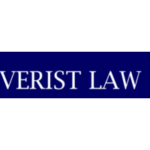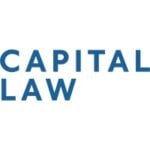-
Please briefly describe the regulatory framework and landscape of both equity and debt capital market in your jurisdiction, including the major regimes, regulators and authorities.
The Cayman Islands is a popular jurisdiction for listing debt and equity securities due to its investor-friendly environment, tax neutrality and political and economic stability. The Cayman Islands Stock Exchange (the CSX) is a globally focused specialist exchange for various sophisticated products, including corporate, retail, and specialist debt securities, equity securities, derivative warrants, investment funds, and depository receipts. The CSX offers a responsive, user-friendly approach to listing, with prompt turnarounds and competitive pricing.
The CSX is recognised by HM Revenue & Customs, is a member of the Intermarket Surveillance Group, and an affiliate member of the International Organisation of Securities Commissions. It has established relationships with global players such as Deutsche Boerse/XETRA®, Bloomberg, Clearstream, and CUSIP Global Services.
The Official List can be found at (http://www.csx.ky).
Regulators
The CSX is supervised and regulated by the Stock Exchange Authority; an autonomous body established for this purpose. Broker members domiciled in the Cayman Islands may be regulated by the Cayman Islands Monetary Authority (CIMA), unless they fall under certain exemptions.
Legislative and Regulatory Framework
The CSX is governed by the Stock Exchange Company Act (revised), which established the CSX, the Stock Exchange Authority, and the Council of the CSX. The Council manages the business affairs and day-to-day operations of the CSX, delegating listing matters to the listing committee and membership and trading matters to the membership committee.
Listing of equity and debt securities is governed by the CSX listing rules (the Listing Rules), which also set out the continuing obligations of issuers, enforcement mechanisms, and procedures for suspension and cancellation of listings.
The Cayman Islands aligns with various global frameworks and reporting networks, including the OECD Global Forum, the Common Reporting Standard, and the Financial Action Task Force, ensuring adherence to international standards on compliance, anti-money laundering, and transparency.
The Cayman Islands Companies Act (revised) (the Companies Act) governs the formation, operation, and regulation of companies in the Cayman Islands.
Broker members of the CSX may also be subject to the Securities and Investment Business Act (revised) (SIBA). The SIBA applies to companies and partnerships engaged in “securities investment business” in the Cayman Islands, requiring registration or licensing by CIMA unless exempt. Registered entities and those holding a full license from CIMA under the SIBA are subject to ongoing obligations and routine on-site inspections by CIMA.
-
Please briefly describe the common exemptions for securities offerings without prospectus and/or regulatory registration in your market.
In the Cayman Islands, all listed instruments must meet the generally applicable prospectus requirements set out in Chapter 2 of the Listing Rules and the relevant chapter applicable to the securities being listed. However, the CSX may waive any Listing Rules deemed inappropriate or inapplicable. The CSX can permit the non-publication of certain information if the issuer demonstrates that its disclosure would be against public interest or unduly harmful to the issuer, and if withholding the information would not mislead investors regarding essential facts for assessing the securities. For instance, proprietary information provided directly to investors can be excluded from the listing document or submitted in a redacted version if its public disclosure would harm the issuer’s business.
-
Please describe the insider trading regulations and describe what a public company would generally do to prevent any violation of such regulations.
The Insider Trading Regulations
Insider trading is regulated by SIBA, with CIMA responsible for overseeing insider dealing under SIBA. The CSX must notify CIMA of certain “specified matters” related to its broker members, and CIMA must inform the CSX of any significant issues concerning the CSX’s broker members who are licensed by CIMA.
Subject to various available defences, an individual with information as an insider commits an offence if they:
- deal in listed securities that are price-affected securities in relation to the information (meaning that the information, if made public, would be likely to have a significant effect on their value);
- encourage another person to deal in listed securities that are price-affected securities in relation to the information; or
- disclose the information to another person, except in the proper performance of their duties.
An individual has “information as an insider” if the information is inside information and the individual is aware of this, and if the information was obtained from an inside source, such as the individual being a director, employee, or shareholder of an issuer, or through their employment, office, or profession.
“Inside information” is information that relates to particular listed securities or to a particular issuer (or issuers) of listed securities, is specific, has not been made public, and is price sensitive.
A person convicted of insider dealing may face a fine of up to CI$10,000 (approximately US$12,500) and imprisonment for up to 7 years.
Protection Against Violation of the Insider Trading Regulations
The CSX’s Model Code of Conduct for Directors, Senior Managers, and Employee Insiders (Model Code) imposes tight restrictions on dealing in an issuer’s securities. It aims to prevent abuse or suspicion of abuse of inside information, especially before an issuer’s announcement of results. Paragraph 8 of the Model Code requires issuers to create an insider list and to ensure employees with access to inside information acknowledge their legal and regulatory duties and are aware of the sanctions for misuse or improper circulation of such information.
Issuers must ensure that any person acting on their behalf or account, who has created an insider list, has taken measures to ensure that everyone on the list acknowledges their duties and is aware of the sanctions for misuse or improper circulation of inside information.
-
What are the key remedies available to shareholders of public companies / debt securities holders in your market?
Unlike English law, shareholders of Cayman Islands companies cannot claim against the company for unfair prejudice. Instead, they can file a winding-up petition on just and equitable grounds. The court has the discretion to grant alternative remedies instead of a winding-up order, such as:
- regulating the company’s future conduct;
- requiring the company to cease or perform specific actions;
- authorizing civil proceedings in the company’s name; or
- ordering the purchase of shares by other members or the company itself, potentially reducing the company’s capital.
Creditors of a company can also use the just and equitable winding-up mechanism, allowing holders of debt securities to present a winding-up petition to the court in relation to the issuer of those securities. However, if an event of default has occurred under the debt issuance documentation, a less drastic option would be to follow the appropriate acceleration and, if applicable, security enforcement process. Depending on the structure of the debt issuance, this process might need to be undertaken by a note or security trustee.
-
Please describe the expected outlook in fund raising activities (equity and debt) in your market in 2025.
As of June 2025, the CSX has listed over 8,500 securities with a market capitalization exceeding US$950 billion. The Cayman Islands is expected to remain a favorable jurisdiction for fundraising activities.
As a leading offshore jurisdiction, the Cayman Islands’ economic outlook for raising capital is closely tied to the global economy, particularly the markets in the US, Europe, and Asia. While not immune to geopolitical risks and global economic volatility, the Cayman Islands enjoys a stable and robust reputation. In February 2024, the Cayman Islands was removed from the EU Anti-Money Laundering (AML) list following the Financial Action Task Force (FATF) monitoring group’s decision and subsequent removal from the UK’s list of high-risk third countries for AML purposes. In October 2024, the FATF appointed the Cayman Islands as one of the first-ever guest members under the new Regional Bodies’ Guest Initiative, allowing participation in plenaries, meetings, and working groups for a year. This development highlights the evolving perception and status of the Cayman Islands internationally.
No significant legislative changes are expected in the next 12 months that would directly impact the capital markets landscape in the Cayman Islands. However, the government continues to update legislation related to anti-money laundering, corporate governance, and beneficial ownership regimes.
The CSX Listing Rules are regularly updated, but no new reforms are planned for the next 12 months.
-
What are the essential requirements for listing a company in the main stock exchange(s) in your market? Please describe the simplified regime (if any) for company seeking a dual-listing in your market.
The general listing requirements are outlined in Chapter 2 of the Listing Rules, with primary listings governed by Chapter 6 and secondary listings by Chapter 7.
Chapter 2 aims to ensure market confidence by focusing on suitability, fairness, disclosure, equality, and directors’ conduct. It ensures that issuers and their businesses are suitable for listing, securities are issued and marketed fairly, investors are kept informed of new developments, holders of listed securities are treated equally, and directors act in the interests of investors.
Primary Listings – Chapter 6
- Market Capitalization: New applicants must have an expected initial market capitalization of at least US$5 million.
- Financial Statements: Issuers must have a trading record and published financial statements for three years prior to listing, though exceptions can be made for start-ups, companies in certain specified sectors, or in exceptional circumstances.
- Working Capital: Issuers with less than three years of trading records must demonstrate sufficient working capital.
- Public Ownership: At least 25% of shares must be in public hands, with a minimum of 50 shareholders (exceptions can be made).
- Agents: Issuers must appoint a paying agent and a listing agent.
- Directors: The board must have at least three directors, the majority of whom are independent.
- Auditor: An independent auditor must be appointed.
- Transferability: Shares must be freely transferable (unless any restriction on transferability is approved by the CSX).
- Whole Class Listing: Applications must cover all securities of a class.
- Convertible Securities: Convertible securities can be listed if the CSX is satisfied that investors will adequately be able to assess the value of the securities into which they are converted.
- Clearing and Settlement: Securities must have an ISIN and be eligible for deposit in an acceptable clearing system (e.g. Clearstream, Euroclear or The Depository Trust Company).
- Registrar: Issuers must maintain a share transfer agent or registrar, unless they can demonstrate to the CSX that they are capable of performing these functions.
- Constitution: The issuer’s constitution must include the provisions set out at Schedule 6A to Chapter 6 of the Listing Rules.
Secondary Listings – Chapter 7
- Primary Listing: Securities must have a primary listing on a recognised exchange.
- Whole Class Listing: Applications must cover all securities of a class.
- Transferability: Securities must be freely transferable (unless any restriction on transferability is approved by the CSX) and eligible for deposit in an acceptable clearing system.
Secondary listings have simplified requirements, with no specific minimum size, trading record, or public shareholding requirements. However, the CSX can refuse or cancel a secondary listing if it is not in the public interest or if the issuer is not adequately regulated outside the Cayman Islands.
-
Are weighted voting rights in listed companies allowed in your market? What special rights are allowed to be reserved (if any) to certain shareholders after a company goes public?
The Cayman Islands regulatory landscape offers considerable flexibility to structure companies according to investor demands. As such, there are no restrictions on weighted voting rights, allowing public companies to grant specific rights to certain shareholders, such as veto powers over major corporate decisions.
-
Is listing of SPAC allowed in your market? If so, please briefly describe the relevant regulations for SPAC listing.
The Cayman Islands is a prime jurisdiction for domiciling SPACs, with Cayman-domiciled SPACs eligible to list on the CSX, provided they comply with the Listing Rules. However, it is more common for these SPACs to list on larger, more liquid exchanges like the Nasdaq. The Cayman Islands holds a dominant position as the leading offshore jurisdiction for SPAC and IPO activity on US stock exchanges, with over 430 Cayman companies listed on the NYSE and Nasdaq at the end of 2024. Incorporating a SPAC in the Cayman Islands ensures an efficient post-acquisition structure and avoids additional US tax, legal, or regulatory complications that can arise with a US-domiciled SPAC.
-
Please describe the potential prospectus liabilities in your market.
Primary responsibility for the contents of a listing document lies with the issuer, but investors may have claims against other parties, such as the issuer’s directors, auditors, or advisors. In the Cayman Islands, civil liabilities can arise from negligent or fraudulent misstatements in a prospectus, and criminal liability can be attributed to officeholders who intentionally publish misleading, false, or deceptive statements.
Civil liability for misstatements in a listing document can arise either out of negligent misstatements (under the rule in Hedley Byrne v. Heller) or from fraudulent misstatements. The listing document imposes a duty of care on the company and potentially on its directors, promoters, and professional advisers named or referred to in the document. This duty is owed to individuals who subscribe or apply for securities based on the document’s content. If this duty is breached, those responsible may face claims for losses related to statements for which they accepted responsibility. Liability for fraudulent misstatements may arise if a statement is made with the knowledge that that statement was false or made without care as to whether the statement was true or false.
Damages may also be recovered under the Contracts Act (revised) of the Cayman Islands for pre-contractual misrepresentation, where liability would have arisen if the representation had been made fraudulently. The person making the representation may have a defense if they can prove they had reasonable grounds to believe, and did believe up to the time the contract was made, that the facts represented were true.
-
Please describe the key minority shareholder protection mechanisms in your market.
Shareholder rights are typically governed by the company’s articles of association. However, if majority shareholders act prejudicially towards minority shareholders, the Cayman Islands Courts can intervene.
The presentation of a winding-up petition on just and equitable grounds can be made by a minority shareholder, as per the response to question 4 above.
In cases of ongoing management misconduct, minority shareholders may seek interim remedies such as:
- appointment of provisional liquidators (to prevent asset dissipation, oppression, or misconduct before a final court order);
- freezing injunctions (to secure assets during direct or derivative claims);
- inspectorship (shareholders with at least one-fifth of issued shares can request court-appointed inspectors to examine the company’s affairs and produce a confidential report); or
- stop notices (to delay a transfer of shares, requiring a 14-day prior written notice before any dealings).
In the context of mergers and consolidations, s238 of the Companies Act entitles dissenting shareholders to payment of the fair value of their shares (the fair value to be appraised by the court). A recent landmark decision by the Judicial Committee of the Privy Council confirmed that a minority shareholder in a merging subsidiary is entitled to the right to appraisal in a short-form merger (i.e. in circumstances where the dissenting shareholder owns less than 10% of the shares in the subsidiary).
-
What are the common types of transactions involving public companies that would require regulatory scrutiny and/or disclosure?
Listing Rule 6 outlines corporate actions requiring CSX oversight or disclosure:
- Fundamental Change of Business: Issuers must send an explanatory circular to shareholders and obtain approval for transactions that fundamentally change their business. The CSX must be consulted early regarding the circular’s contents.
- Transactions with Related Parties: For transactions with related parties representing at least 5% by value, issuers must announce details to the CSX and confirm fairness from uninvolved directors. Transactions representing at least 25% by value require shareholder approval and consultation with the CSX.
- Other Disclosures: Changes in board composition, senior management, constitution, registered office, rights of listed securities, capital structure, shareholdings over 5%, new issues of securities, auditor changes, delisting from other exchanges, disciplinary actions, dividend decisions, and decisions to call, repurchase, draw, redeem or offer to buy any of the issuer’s securities must be disclosed to the CSX.
Additional transactions requiring oversight or disclosure include:
- Dealings in Issuer Securities by Restricted Persons: (see question 12 below).
- Takeovers: Offers to acquire a controlling interest in CSX-listed entities are subject to the CSX Code on Takeovers and Mergers, ensuring fair treatment of shareholders.
- Acquisitions and Changes of Control: Acquisitions of interests in share capital and changes of control in entities regulated by CIMA, including banks and insurance companies, generally require CIMA’s prior approval. CIMA may exempt listed group entities from prior approval for changes of control.
-
Please describe the scope of related parties and introduce any special regulatory approval and disclosure mechanism in place for related parties’ transactions.
In addition to the provisions of Chapter 6 of the Listing Rules, as mentioned in question 11 above, the Model Code imposes restrictions on dealing in the securities of an issuer. These restrictions are designed to ensure that individuals with managerial responsibilities and employee insiders do not misuse, or appear to misuse, inside information, particularly in the periods leading up to the announcement of an issuer’s results.
According to the Model Code, a “restricted person” (such as a director or senior manager) must obtain clearance before dealing in any securities of the issuer. The process for obtaining clearance is outlined in paragraph 4 of the Model Code, which specifies who must be consulted before various officeholders can deal in the issuer’s securities. A response to a clearance request must be provided within five business days. If clearance is granted, the restricted person must place the order to deal as quickly as possible, and no later than two business days after receiving clearance.
Clearance to deal cannot be granted during a “prohibited period,” which is the time leading up to the announcement of the issuer’s results, except under exceptional circumstances.
All dealings must be disclosed to the issuer and to the CSX within the timeframes specified in paragraph 7 of the Model Code.
-
What are the key continuing obligations of a substantial shareholder and controlling shareholder of a listed company?
Substantial or controlling shareholders of Cayman Islands companies are not subject to any ongoing obligations under the Listing Rules, the Companies Act, or SIBA. However, “registrable beneficial owners” of Cayman Islands companies are subject to the Beneficial Ownership Transparency Act (BOTA).
A registrable beneficial owner is defined as either:
- an individual who ultimately owns or controls more than 25% of the shares or voting rights in the company, exercises ultimate effective control over the company’s management, or is identified as exercising control through other means; or
- another legal entity that, if it were an individual, would meet the criteria outlined in (a) above.
Most obligations under the BOTA apply to the company rather than its shareholders. However, if the company fails to record the details of a registrable beneficial owner, the registrable beneficial owner must notify the company of their status and the date they became one, along with the required particulars as per BOTA. Registrable beneficial owners must also inform the company of any changes to their beneficial ownership information within 30 days.
-
What corporate actions or transactions require shareholders’ approval?
Cayman companies have considerable autonomy in regulating their activities and decision-making through their articles of association. However, under the Companies Act, certain matters require the approval of the company’s shareholders. These include:
- changing the company’s name;
- amending the memorandum and articles of association;
- altering the company’s share capital;
- appointing inspectors to examine the company’s affairs;
- approving a transfer by way of continuation to another jurisdiction;
- voluntarily winding up the company;
- converting the company into a segregated portfolio company or re-registering an ordinary non-resident company as an exempted company; and
- approving a merger or consolidation involving the company.
-
Under what circumstances a mandatory tender offer would be triggered? Is there any exemption commonly relied upon?
In a tender offer, the squeeze-out mechanism can be used to remove minority shareholders if the statutory threshold is met. Under the Companies Act, shareholders holding 10% or less of the shares can be squeezed out, allowing the acquisition by the purchaser of the entire share capital of the target, if:
- a scheme or contract for the transfer of shares (or any class of shares) to a bidder has been approved by at least 90% in value of the shares affected within four months of the making of the offer; and
- notice is given to dissenting shareholders that the bidder wishes to acquire their shares.
The court has the discretion to order against a proposed squeeze-out and acquisition of dissenting shareholders’ shares upon application by dissenting shareholders.
-
Are public companies required to engage any independent directors? What are the specific requirements for a director to be considered as “independent”?
The board of an issuer must have at least three directors, the majority of whom must be independent.
“Independent” means:
- free of any conflict between that party’s duties to the holders of listed securities and its own interests or (if appropriate) the interests of any service providers;
- able to act independently of management; and
- free from any business or other relationship that could materially interfere with the exercise of independent judgement.
-
What financial statements are required for a public equity offering? When do financial statements go stale? Under what accounting standards do the financial statements have to be prepared?
Issuers seeking a primary listing must have published audited financial statements for at least three financial years. However, the CSX may accept a shorter period for start-up companies in certain sectors or under exceptional circumstances.
For new issuers, the audited financial statements must cover a period ending no more than 12 months before the date of the listing document. If more than nine months have passed since the date of the latest audited accounts, a set of interim financial statements made up to a date no earlier than three months prior to the listing document must be included.
The audited financial statements must be unqualified, unless the qualification is acceptable to the CSX and has been adequately explained, to enable investors to make a properly informed assessment of its significance.
These financial statements must be prepared in accordance with International Accounting Standards, US, Canadian, or United Kingdom Generally Accepted Accounting Principles, or other equivalent standards acceptable to the CSX.
-
Please describe the key environmental, social, and governance (ESG) and sustainability requirements in your market. What are the key recent changes or potential changes?
The Cayman Islands does not have mandatory ESG disclosure requirements for public companies or listed debt instruments. However, many Cayman Islands-listed companies voluntarily align with international standards to meet investor expectations and enhance transparency. In response to increased investor interest, the CSX has established the CSX ESG Market, a flexible platform for ESG investments.
The CSX ESG Market helps issuers meet investor demands for consistent disclosures and enhances visibility for bonds, funds, and trading companies verified as making a positive environmental impact or classified as sustainable securities. It provides a platform for issuers to market their securities and publish material information and reports.
Eligibility for the CSX ESG Market is contingent on:
- listing on the Official List of the CSX;
- submission of a completed CSX ESG Market Declaration Form, including:
- classification of the securities;
- certification of the use of proceeds (green, social, or sustainability) or issuer-level classification (green revenues or sustainability-linked bonds);
- disclosure of mandatory sustainability-related documents, such as an Independent External Review, and commitment to ongoing post-issuance reporting obligations;
- Independent External Review by a third party that is:
- independent of the issuer;
- remunerated to prevent conflicts of interest; and
- specialised in assessing the environmental or social objectives of bonds and the use of proceeds.
The CSX accepts external reviews consistent with ICMA Guidelines for External Reviews.
The Cayman Islands is known for effective yet light-touch regulation, making it unlikely that mandatory ESG reporting will be implemented in the short term. However, the need to mobilise finance for a sustainable transition is recognised, and the Cayman Islands financial services community is well-positioned to respond. As the many ESG reporting frameworks evolve and converge, we can expect the Cayman Islands to adapt as necessary, leveraging the strength of its financial services industry to become a leading domicile for sustainable finance.
-
What are the typical offering structures for issuing debt securities in your jurisdiction? Does the holding company issue debt securities directly or indirectly (by setting up a SPV)? What are the main purposes for issuing debt securities indirectly?
It is not common for a sponsor company to issue debt securities directly in the Cayman Islands market. Instead, debt securities are almost always issued through a Special Purpose Vehicle (SPV). The SPV is established as an “orphan” company, with its shares held in trust by a Cayman-licensed trust company, often for charitable purposes to ensure the orphan structure is maintained.
The orphan structure is utilised because it ensures that the issuer SPV is not considered an affiliate or subsidiary of any other entity from a legal or accounting perspective. This helps achieve bankruptcy remoteness, effectively segregating the assets of the SPV from any other property held by the sponsor and putting them out of the reach of creditors in the event of the sponsor’s insolvency. In the context of securitization, the originator of the underlying assets can transfer them to an orphan SPV, thereby removing those assets from the originator’s balance sheet and freeing up capital reserves that would otherwise be required for capital adequacy purposes.
The Cayman Islands is a popular jurisdiction for establishing an asset-owning SPV for several reasons. The political, legal, and fiscal environment is stable and creditor-friendly, the territory offers a tax-neutral setting, and the prominence of Cayman’s financial services industry means that any unfavorable change to the status quo is extremely unlikely. As a British Overseas Territory, English common law underpins the legal system, and the Privy Council is the ultimate court of appeal.
-
Are trust structures adopted for issuing debt securities in your jurisdiction? What are the typical trustee’s duties and obligations under the trust structure after the offering?
In the Cayman Islands, debt securities are almost always issued by an exempted company SPV, incorporated with limited liability. It is not common for a trust structure to be employed for issuing debt securities.
-
What are the typical credit enhancement measure (guarantee, letter of credit or keep-well deed) for issuing debt securities? Please describe the factors when considering which credit enhancement structure to adopt.
There are several forms of credit enhancement commonly used in the issuance of debt securities, and the approach depends on the specific deal structure and type of debt issuance. Factors such as the cost of obtaining credit enhancement, its reliability and effectiveness at risk mitigation and investor perception will all be considered.
- Security and quasi-security (such as the use of netting, set-off, limited recourse and non-petition provisions) is common in the Cayman market.
- If an SPV is newly formed or thinly capitalised, a guarantee may be provided by the sponsor, the originator of receivables or by a third party guarantor such as a monoline insurer.
- Credit risk is often divided into tranches, where the rights of different classes of investor are contractually subordinated. Payments on a class of debt securities are made only when amounts due on higher-ranking classes have been fully paid.
- In a securitization, excess spread may be employed, where revenue is generated from the difference between the interest rate of the underlying receivables and the interest rate payable on the debt securities.
- An issuance may be overcollateralised, where the value of the underlying assets must be larger than the par value of the debt securities.
-
What are the typical restrictive covenants in the debt securities’ terms and conditions, if any, and the purposes of such restrictive covenants? What are the future development trends of such restrictive covenants in your jurisdiction?
Most debt issuances listed on the CSX are governed by the laws of major onshore jurisdictions such as England or New York, so the restrictive covenants will follow the market standard for those jurisdictions. It is common to see the following:
- Limitation on incurring further debt: to protect existing noteholders from being subordinated or diluted by additional indebtedness.
- Negative pledge: to prevent the issuer from pledging assets as collateral to secure other indebtedness.
- Restriction on asset sales: to prevent the sale of significant assets and preserve value.
- Change of control: to trigger early repayment if there is a change in control of the issuer.
Given the current volatility in the global economy, including the bond market, the outlook is complex and multifaceted. If bond prices decline, as some commentators predict, issuers may face challenges in raising funds through new debt offerings. This scenario could empower investors to demand stricter controls to safeguard their portfolios.
-
In general, who is responsible for any profit/income/withholding taxes related to the payment of debt securities’ interests in your jurisdiction?
If the issuer entity is incorporated in the Cayman Islands, it will not be subject to direct taxes (such as income tax, revenue tax, or capital gains tax). The Cayman Islands does not impose withholding tax on interest payments made to non-resident bondholders.
The CSX has been accepted as a “recognised stock exchange” by the UK HM Revenue & Customs since 2004. This recognition allows issuers of corporate and sovereign debt securities to benefit from the “eurobond exemption”, enabling them to pay interest to investors without deducting withholding tax. This means that CSX-listed corporate and sovereign debt securities are eligible for certain UK pension investments.
-
What are the main listing requirements for listing debt securities in your jurisdiction? What are the continuing obligations of the issuer after the listing?
Like the listing of shares, the listing of debt securities is governed by Chapter 2 of the Listing Rules, which outlines general requirements applicable to all listings. Additionally, Chapter 8 applies to specialist debt securities, Chapter 12 to corporate and sovereign debt securities, and Chapter 13 to retail debt securities.
Listing Requirements for Corporate and Sovereign Debt Securities
- Financial Statements: The issuer must have published independently audited financial statements for at least the last two years, prepared according to acceptable accounting standards. This requirement can be waived for supranational bodies or securities guaranteed by a government or another company.
- Business and Experience: The issuer must (itself or through a subsidiary) be engaged in a revenue-earning independent business, and the issuer’s directors must have appropriate expertise and experience.
- Compliance and Consents: The securities must comply with the issuer’s local laws, be authorised by its constitutional documents, and any necessary consents.
- Transferability: The debt securities must be freely transferable (unless any restriction on transferability is approved by the CSX).
- Whole Class Listing: The application must cover the entire class of securities.
- Guarantees: Guarantees must comply with the laws of the guarantor’s place of incorporation and with its constitutional documents.
- Convertible Securities: Investors must have access to sufficient information to assess the value of the securities into which they are converted.
- Clearing and Settlement: The debt securities must have an ISIN and be eligible for deposit in an acceptable electronic clearing and settlement system (e.g. Clearstream, Euroclear, or The Depository Trust Company).
- Paying Agent: There must be appointed a paying agent based in the Cayman Islands or another financial centre acceptable to the CSX.
Continuing Obligations
The issuer must:
- inform the CSX of any non-public developments that may materially affect market activity or the price of its securities;
- ensure equal treatment of all holders of listed securities of the same class;
- provide necessary information and facilities to enable holders of securities to exercise their rights;
- publish annual audited financial statements in accordance with International Accounting Standards or other acceptable standards within nine months of the end of the financial period, notify holders and the CSX when available, and provide copies to the CSX (these requirements can be waived if non-publication is unlikely to mislead investors);
- notify the CSX of certain matters, including:
- changes to the rights of any class of listed securities;
- decisions not to make expected interest payments;
- decisions to call, purchase, redeem, or cancel listed securities;
- purchases, redemptions, or cancellations of securities totaling ten percent of the initial nominal amount;
- changes to the general character or nature of the issuer’s business;
- new issues of debt securities;
- changes to the issuer’s constitutional documents or registered office; and
- changes to the board of directors or auditor,
following which, the CSX will make public announcements of these matters;
- maintain a paying agent in an acceptable financial centre and inform the CSX of any changes;
- make arrangements acceptable to the CSX for efficient clearance and settlement of trades and registration of transfers of listed securities;
- ensure that documents required to be filed and information required to be notified to the CSX are simultaneously made available to any other stock exchange where the securities are listed;
- pay the annual CSX fee; and
- provide the CSX with copies of all notices of meetings, forms of proxy, reports, announcements, and similar documents.
The issuer may apply to the CSX for a waiver if it takes the view that a particular disclosure would be unduly detrimental to it. The information must be provided to the CSX, which will handle it confidentially, but may order the issuer to deliver to it an announcement for dissemination.
Cayman Islands: Capital Markets
This country-specific Q&A provides an overview of Capital Markets laws and regulations applicable in Cayman Islands.
-
Please briefly describe the regulatory framework and landscape of both equity and debt capital market in your jurisdiction, including the major regimes, regulators and authorities.
-
Please briefly describe the common exemptions for securities offerings without prospectus and/or regulatory registration in your market.
-
Please describe the insider trading regulations and describe what a public company would generally do to prevent any violation of such regulations.
-
What are the key remedies available to shareholders of public companies / debt securities holders in your market?
-
Please describe the expected outlook in fund raising activities (equity and debt) in your market in 2025.
-
What are the essential requirements for listing a company in the main stock exchange(s) in your market? Please describe the simplified regime (if any) for company seeking a dual-listing in your market.
-
Are weighted voting rights in listed companies allowed in your market? What special rights are allowed to be reserved (if any) to certain shareholders after a company goes public?
-
Is listing of SPAC allowed in your market? If so, please briefly describe the relevant regulations for SPAC listing.
-
Please describe the potential prospectus liabilities in your market.
-
Please describe the key minority shareholder protection mechanisms in your market.
-
What are the common types of transactions involving public companies that would require regulatory scrutiny and/or disclosure?
-
Please describe the scope of related parties and introduce any special regulatory approval and disclosure mechanism in place for related parties’ transactions.
-
What are the key continuing obligations of a substantial shareholder and controlling shareholder of a listed company?
-
What corporate actions or transactions require shareholders’ approval?
-
Under what circumstances a mandatory tender offer would be triggered? Is there any exemption commonly relied upon?
-
Are public companies required to engage any independent directors? What are the specific requirements for a director to be considered as “independent”?
-
What financial statements are required for a public equity offering? When do financial statements go stale? Under what accounting standards do the financial statements have to be prepared?
-
Please describe the key environmental, social, and governance (ESG) and sustainability requirements in your market. What are the key recent changes or potential changes?
-
What are the typical offering structures for issuing debt securities in your jurisdiction? Does the holding company issue debt securities directly or indirectly (by setting up a SPV)? What are the main purposes for issuing debt securities indirectly?
-
Are trust structures adopted for issuing debt securities in your jurisdiction? What are the typical trustee’s duties and obligations under the trust structure after the offering?
-
What are the typical credit enhancement measure (guarantee, letter of credit or keep-well deed) for issuing debt securities? Please describe the factors when considering which credit enhancement structure to adopt.
-
What are the typical restrictive covenants in the debt securities’ terms and conditions, if any, and the purposes of such restrictive covenants? What are the future development trends of such restrictive covenants in your jurisdiction?
-
In general, who is responsible for any profit/income/withholding taxes related to the payment of debt securities’ interests in your jurisdiction?
-
What are the main listing requirements for listing debt securities in your jurisdiction? What are the continuing obligations of the issuer after the listing?


















